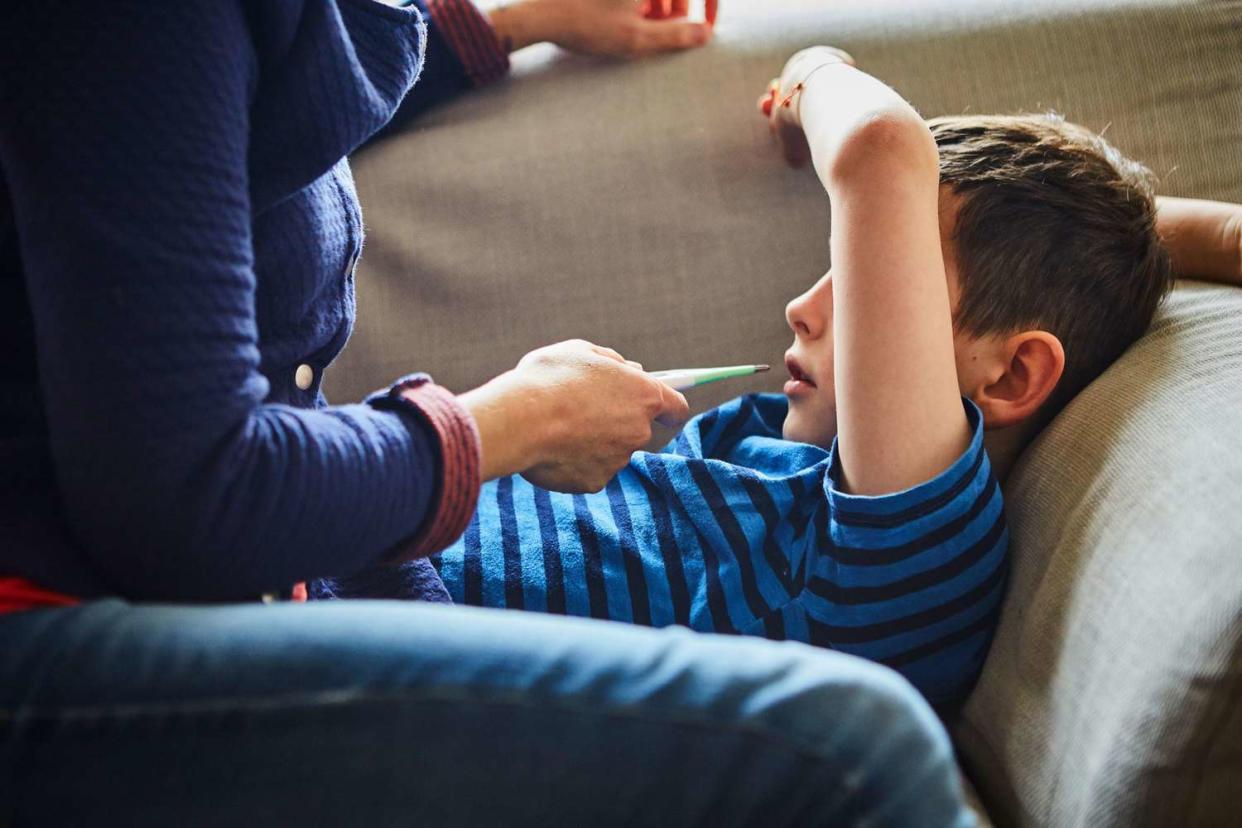Rare Summertime Cases of RSV Are Spiking Again in These 6 States

Getty Images Sick child
For the second time this summer, cases of RSV — or Respiratory Syncytial Virus — are unusually high in parts of the United States. While the illness is common and the typical cause of bronchiolitis and pneumonia in kids under 1 years old, it usually spreads during the winter, not the warmer summer months.
In six states — Iowa, Kentucky, Minnesota, Missouri, Ohio and Texas — their health departments are reporting more than 100 cases, according to data from the Centers for Disease Control, well above the typical infection rate for the summer. Texas is seeing the largest spike, with over 1,000 cases reported in the last five weeks.
The CDC had first warned back in June that there was a seasonally-unusual spread of RSV in the U.S., particularly in southern states.
"Due to this increased activity, CDC encourages broader testing for RSV among patients presenting with acute respiratory illness who test negative for SARS-CoV-2, the virus that causes COVID-19," the CDC wrote in the health advisory. They also advised healthcare workers to stay home if they're feeling sick, even if they've tested negative for COVID-19.
RELATED: RSV Is Spreading in the United States: Here's What You Need to Know About the Respiratory Virus
For most kids, RSV presents as a minor cold and can be treated easily at home. But parents of young children under 1 years old, along with adults over 65 or those with chronic illnesses, should monitor for more severe symptoms like trouble breathing or eating.
"The concern comes when the child's oxygen level drops or they are breathing too hard to eat or drink normally," Dr. Elizabeth Murray, a pediatrician specializing in Pediatric Emergency Medicine and Child Health Advocacy and a member of PEOPLE's Health Squad, previously told PEOPLE. "But the good news for parents is that the concerning symptoms are not subtle. If your child cannot eat or drink normally or is having trouble breathing, they need to be evaluated by a medical professional."
RELATED: Common Respiratory Virus Lands 14-Month-Old in ICU: 'I Freaked Out,' Says Toddler's Mom
With newborn infants, though, they "can have almost no symptoms but become critically ill," Murray says, so parents need to be extra cautious about taking them out and about when RSV is spreading in their area.
"It's yet another reminder to limit visitors when you have a newborn to hopefully decrease the likelihood of passing RSV or another germ onto a baby," she said.
RELATED VIDEO: Reba McEntire Says She Actually Did Not Have COVID: 'I Probably Had the RSV Virus'
The best forms of prevention for RSV are similar to the recommendations for COVID-19 — wash hands regularly, avoid touching unnecessary surfaces and stay home if you're sick. The lifting of many mask restrictions and other COVID-19 precautions is likely why RSV cases have spiked this summer, Murray says.
"This is the germ that normally, along with flu, fills every children's hospital each fall and winter," she says. "It was unusual that we did not see any RSV this past winter, however we know why. Now that we are lifting the restrictions that helped prevent it, it should not be unexpected that it has returned."

